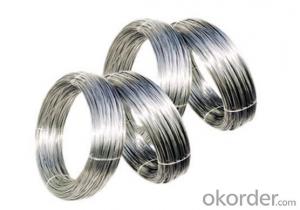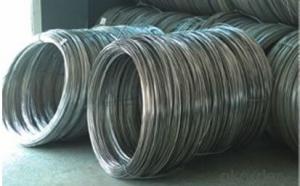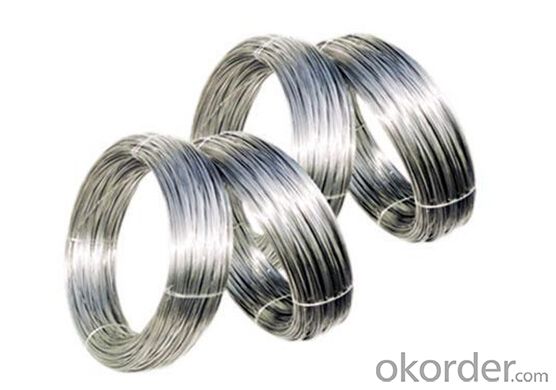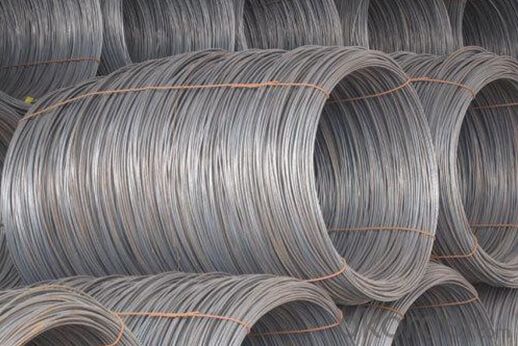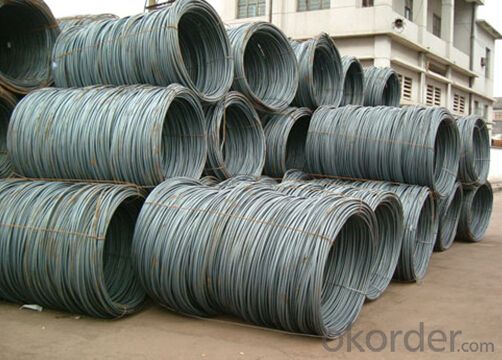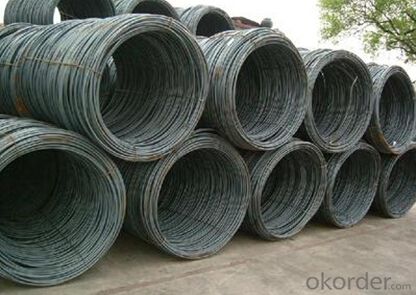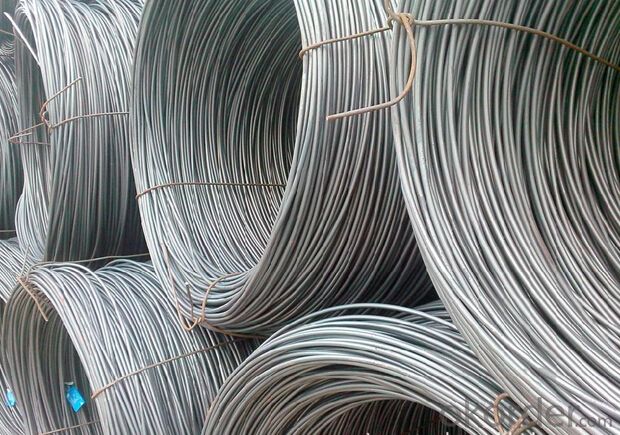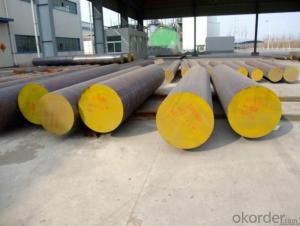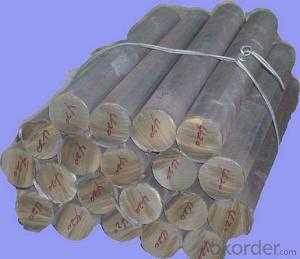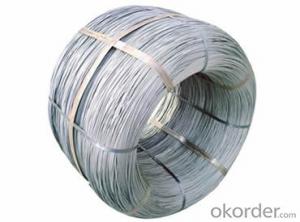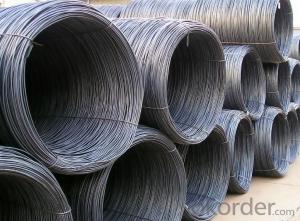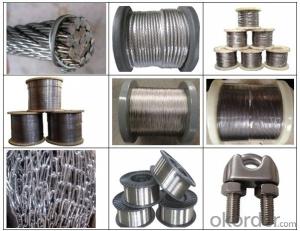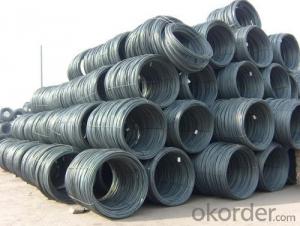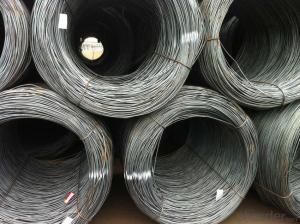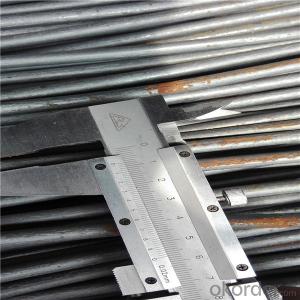8mm Hot Rolled Low Carbon Steel Wire Coil-Steel Wire Rods
- Loading Port:
- Tianjin
- Payment Terms:
- TT or LC
- Min Order Qty:
- 25 m.t.
- Supply Capability:
- 10000 m.t./month
OKorder Service Pledge
OKorder Financial Service
You Might Also Like
Specification
8mm Hot Rolled Low Carbon Steel Wire Coil-Steel Wire Rods
Specification
Name | 8mm hot rolled low carbon steel wire coil/steel wire rod |
Standard | GB, SAE, SGS, ASTM |
Diameter | 8mm |
Coil weight | 1.8-2.1tons |
MOQ | 25tons |
Deliver Time | 15 days after receipt of L/C or deposit by T/T |
Packing | In coil and load in container, if large quantity, by bulk vessel; can be packed as customers' special requirements |
Payment terms | 1).100% irrevocable L/C at sight. |
Application | Building material, machinery parts |
Chemical Composition
Grade | Chemical Composition(%) | |||||
C | Mn | Si | S | P | Cr | |
SAE1006B | 0.03~O.07 | ≤0.32 | ≤0.30 | ≤0.045 | ≤0.040 | 0.3-0.35 |
Mechanical properties | ||||||
Yield strength(N/mm2) | Tensile strength(N/mm2) | Elongation(%) | ||||
250-280 | 350-380 | ≥32 | ||||
Grade | Chemical Composition(%) | |||||
C | Mn | Si | S | P | Cr | |
SAE1008B | 0.10max | 0.3~O.50 | 0.15max | 0.050max | 0.040 max | 0.3-0.35 |
Mechanical properties | ||||||
Yield strength(N/mm2) | Tensile strength(N/mm2) | Elongation(%) | ||||
≥195 | 315-430 | ≥30 | ||||
Company Information
CNBM International Corporation is the most import and export platform of CNBM group(China National Building Material Group Corporation) ,which is a state-owned enterprise, ranked in 270th of Fortune Global 500 in 2015.
With its advantages, CNBM International are mainly concentrate on Cement, Glass, Iron and Steel, Ceramics industries and devotes herself for supplying high quality series of refractories as well as technical consultancies and logistics solution.
After-sale service | CNBM provides the services and support you need for every step of our cooperation. We’re the business partners you can trust; you can relax and get on with doing business. |
For any problem, please kindly contact us at any your convenient time, we’ll reply you in our first priority within 24 hours | |
Advantages | Industry experience over 20 years. |
Shipment of goods -More than 70 countries worldwide. | |
The most convenient transport and prompt delivery. | |
Competitive price with best service. | |
High technical production line with top quality products. | |
High reputation based on best quality products. |
Products Show
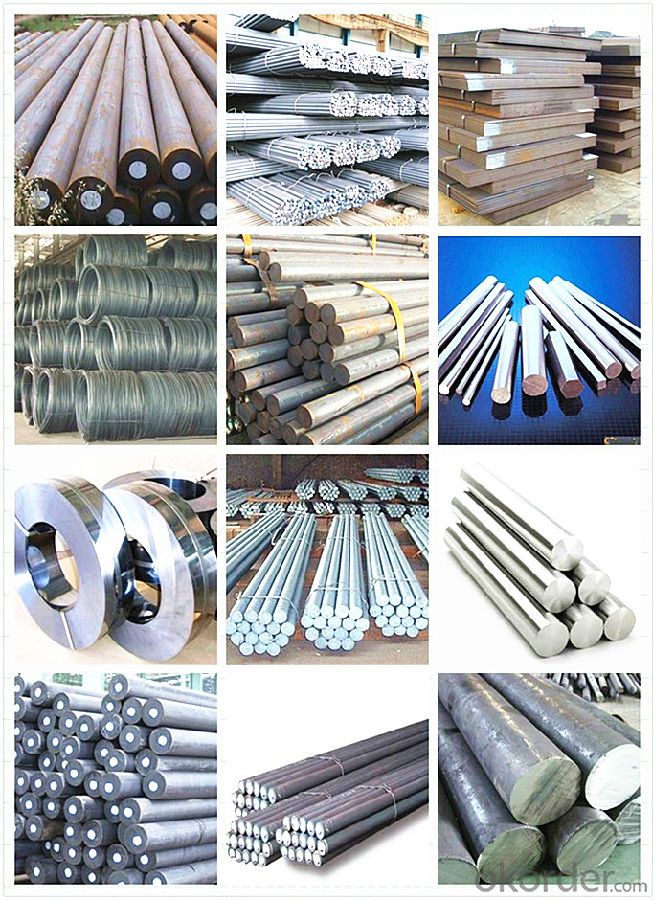
FAQ
Are you a trading company or manufacturer? | Manufacturer |
What’s the MOQ? | 3 metric ton |
What’s your delivery time? | 15-35 days after downpayment received |
Do you Accept OEM service? | Yes |
what’s your delivery terms? | FOB/CFR/CIF |
What's the Payment Terms? | 30% as deposit,70% before shipment by T/T |
Western Union acceptable for small amount. | |
L/C acceptable for large amount. | |
Scrow ,Paybal,Alipay are also ok | |
Why choose us? | Chose happens because of quality, then price, We can give you both. |
Additionally, we can also offer professional products inquiry, products knowledge train (for agents), smooth goods delivery, excellent customer solution proposals. | |
What's your available port of Shipment? | Main Port, China |
What’s your featured services? | Our service formula: good quality+ good price+ good service=customer's trust |
Where are your Market? | Covering more than 160 countries in the world |
- Q: What are the different case hardening grades of special steel?
- There are several different case hardening grades of special steel, including but not limited to, 1018, 1020, 8620, and 9310. These grades are specifically formulated to provide increased strength and wear resistance by creating a hardened outer layer, or case, while maintaining a softer, more ductile core.
- Q: What are the different types of tool and die steel?
- There are several different types of tool and die steel, including high-speed steel, carbon steel, and alloy steel. High-speed steel is known for its ability to maintain hardness and withstand high temperatures, making it suitable for cutting tools. Carbon steel is often used for dies and punches due to its toughness and wear resistance. Alloy steel, which is a combination of iron and other elements, offers enhanced strength and durability, making it ideal for various tool and die applications.
- Q: What are the different cutting tools used for machining special steel?
- Some of the different cutting tools used for machining special steel include high-speed steel (HSS) drills, carbide drills and end mills, diamond-coated tools, and solid carbide inserts. These tools are specifically designed to withstand the high cutting forces and temperatures associated with machining special steel, ensuring efficient and precise metal removal.
- Q: What are the specific requirements for special steel used in the nuclear fuel industry?
- The specific requirements for special steel used in the nuclear fuel industry are stringent and demanding. These requirements are necessary to ensure the safety and reliability of nuclear power plants. Here are some of the key specifications for special steel used in this industry: 1. High temperature resistance: Special steel used in the nuclear fuel industry must be able to withstand high temperatures without losing its structural integrity. This is crucial as nuclear reactors generate extreme heat during operation. 2. Corrosion resistance: Nuclear fuel environments can be highly corrosive due to the presence of hot and pressurized water, radiation, and chemical reactions. Special steel used in the industry must have exceptional corrosion resistance to prevent degradation and maintain safety. 3. Radiation resistance: The nuclear fuel industry involves exposure to radiation. Special steel needs to have excellent resistance to radiation damage and embrittlement to ensure long-term structural integrity and prevent any risk of failure. 4. High strength and toughness: Special steel used in the nuclear fuel industry should possess high strength and toughness to withstand the extreme conditions experienced within a nuclear reactor. This ensures that the steel can withstand the pressure and stress exerted on it during reactor operation. 5. Low neutron absorption: Neutron absorption is a critical factor in nuclear reactors. Special steel used in the industry should have low neutron absorption properties to prevent interference with the nuclear reactions and to maintain reactor efficiency. 6. Strict quality control and traceability: The manufacturing and fabrication of special steel for the nuclear fuel industry must adhere to stringent quality control procedures to ensure consistency and reliability. Traceability is also crucial to identify the origin and history of the steel, allowing for comprehensive inspections and assessments. Meeting these specific requirements is essential for the safe and efficient operation of nuclear power plants. Special steel used in the nuclear fuel industry must undergo rigorous testing, certification, and quality control processes to ensure its compliance with these stringent specifications.
- Q: Can special steel be used in the chemical processing industry?
- Yes, special steel can be used in the chemical processing industry. Special steel alloys, such as stainless steel, offer excellent corrosion resistance and high strength, making them suitable for various applications in chemical plants. These steels can withstand the harsh conditions, chemicals, and high temperatures typically encountered in chemical processing, ensuring the safety and efficiency of the operations.
- Q: What are the requirements for special steel used in cryogenic applications?
- The requirements for special steel used in cryogenic applications include high strength and toughness at low temperatures, resistance to thermal stresses, low thermal conductivity, and the ability to maintain mechanical properties even in extremely cold environments. Additionally, the steel must possess excellent corrosion resistance to prevent degradation in cryogenic fluids and be able to withstand the extreme temperature cycling that occurs during cryogenic processes.
- Q: What are the different magnetic grades of special steel?
- Various applications commonly utilize different magnetic grades of special steel. Some well-known magnetic grades include: 1. Soft Magnetic Materials: These special steel grades possess high magnetic permeability and low coercivity. They are ideal for applications requiring strong magnetic induction, such as transformers, electric motors, and magnetic cores for electrical devices. 2. Martensitic Stainless Steels: In their hardened state, these special steel grades exhibit a high magnetic permeability. They are commonly employed in cutlery, tools, and specific automotive components. 3. Ferritic Stainless Steels: Although their magnetic permeability is lower compared to martensitic stainless steels, these special steel grades are still magnetic. They find application in automotive exhaust systems, decorative trim, and appliances. 4. Duplex Stainless Steels: These special steel grades have a mixed microstructure of austenite and ferrite, resulting in a magnetic response. They are renowned for their exceptional corrosion resistance and are utilized in chemical processing equipment and offshore oil and gas platforms, where both strength and corrosion resistance are crucial. 5. Austenitic Stainless Steels: In their annealed state, these special steel grades are non-magnetic. However, slight magnetism can be observed when they undergo cold working or contain specific alloying elements. Austenitic stainless steels are widely used in food processing equipment, architectural structures, and medical devices. It is important to remember that the presence or absence of magnetism in special steel grades can vary depending on factors such as composition, heat treatment, and processing. Therefore, it is essential to consider the specific requirements of an application when selecting the appropriate magnetic grade of special steel.
- Q: What are the properties of corrosion-resistant alloy steel?
- Corrosion-resistant alloy steel possesses properties such as high resistance to corrosion, excellent strength, durability, and the ability to withstand harsh environmental conditions. It is resistant to rust, corrosion, and oxidation, making it ideal for applications in industries such as marine, chemical, and oil and gas. The alloy steel also offers good mechanical properties, including high tensile strength and toughness, which ensures its long-term performance and reliability.
- Q: How does special steel contribute to the manufacturing of consumer goods?
- Special steel plays a significant role in the manufacturing of consumer goods by providing enhanced durability, strength, and performance to various products. This type of steel is engineered with specific properties and alloys to meet the high standards and demands of consumer goods manufacturing. One of the primary ways special steel contributes to the manufacturing of consumer goods is through its strength and durability. It provides a solid foundation for products that need to withstand heavy use, such as kitchen appliances, power tools, and automotive components. The strength of special steel ensures that these products can withstand daily wear and tear, resulting in increased lifespan and reduced maintenance costs for consumers. Moreover, special steel's corrosion resistance properties make it an ideal material for consumer goods that are exposed to harsh environments or moisture. This is particularly important for products like kitchen utensils, cutlery, and bathroom fixtures, as they often come into contact with water or corrosive substances. By incorporating special steel, manufacturers can ensure that their products remain rust-free and maintain their aesthetic appeal over time. In addition to strength and corrosion resistance, special steel also offers enhanced performance capabilities. For instance, it can be used in the manufacturing of consumer goods that require high heat resistance, such as cooking appliances and automotive engine components. Special steel's ability to withstand extreme temperatures without deforming or losing its properties makes it a crucial material in these applications. Furthermore, special steel's versatility allows it to be tailored to specific consumer needs. Manufacturers can choose from a wide range of special steel alloys with varying characteristics, enabling them to optimize the performance of their products. This flexibility allows for the production of customized consumer goods that meet specific requirements, whether it be lightweight materials for portable electronics or impact-resistant components for sporting equipment. Overall, special steel plays a vital role in the manufacturing of consumer goods by providing strength, durability, corrosion resistance, and enhanced performance. Its unique properties contribute to the production of high-quality products that can withstand heavy use, offer extended lifespans, and ensure customer satisfaction.
- Q: How is special steel used in the production of injection molds?
- Special steel is commonly used in the production of injection molds due to its high strength, durability, and resistance to wear and corrosion. These properties make it ideal for withstanding the high temperatures, pressures, and repetitive stresses involved in the injection molding process. Additionally, special steel's excellent heat conduction enables efficient cooling, resulting in faster production cycles and improved part quality. Overall, the use of special steel in injection molds ensures the production of high-quality, precise, and consistent plastic parts.
Send your message to us
8mm Hot Rolled Low Carbon Steel Wire Coil-Steel Wire Rods
- Loading Port:
- Tianjin
- Payment Terms:
- TT or LC
- Min Order Qty:
- 25 m.t.
- Supply Capability:
- 10000 m.t./month
OKorder Service Pledge
OKorder Financial Service
Similar products
Hot products
Hot Searches
Related keywords
